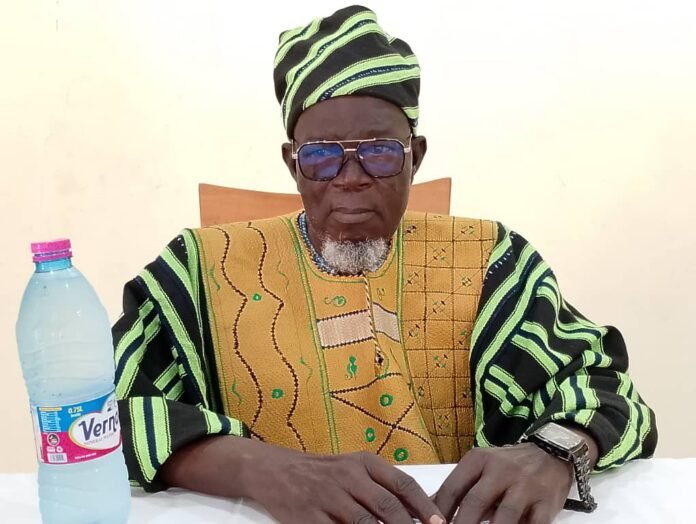The Bole Traditional Council held an emergency meeting yesterday Monday 13th October 2025 to address escalating tensions between the Gonja and Lobi communities while appealing for government support on critical infrastructure and administrative needs.
The meeting, held at Mom and Dad Lodge in the Bole Municipality, was called as communal violence between the two ethnic groups has sparked widespread concern among traditional leaders who view themselves as guardians of peace.
Speaking on behalf of Bolewura Sarfo Kutuge Feso (I), Council Registrar Mohammed Abdulai described the conflict as a matter weighing heavily on their collective conscience, noting that the incident has caused pain, fear, and destruction that everyone must condemn in the strongest terms.
While acknowledging the Gonja people’s historical commitment to peace, tolerance, and neighborly respect, Bolewura emphasized that one principle remains non-negotiable: territorial integrity. “One thing Gonjas don’t tolerate is the claim for even an inch of our land,” he stated.
However, the Bolewura urged all parties to abandon violence in favor of dialogue, tolerance, and mutual understanding. “Violence has never been the solution to any disagreement; it only deepens wounds and divides families that were once united,” he said, calling on combatants to lay down their arms.
The traditional leader expressed confidence that government intervention will yield results, noting that authorities have established a committee to work with the Yagbonwura to investigate the conflict’s root causes and recommend sustainable solutions to prevent future incidents.
Beyond the immediate security crisis, the Traditional Council outlined systemic challenges hindering its operations. Most pressing is the lack of a permanent, adequately equipped office space. For years since the council’s inauguration, operations have proceeded under substandard conditions that officials say do not reflect their status or dignity.
The council seeks a modern office complex that would serve as both administrative headquarters and ceremonial center, providing proper meeting space, record-keeping facilities, and improved coordination of traditional affairs.
Transportation challenges compound administrative difficulties. The Council Registrar lacks reliable vehicles to attend meetings outside the traditional area, respond to emergencies, or fulfill official duties effectively.
Beyond these immediate needs, the Traditional Council faces multifaceted challenges including inadequate educational facilities, unresolved chieftaincy disputes, youth unemployment, insufficient healthcare services, poor internal road networks, and unresolved land boundary issues.
Rather than expressing despair, the Bolewura framed these challenges as surmountable through collective effort. “If we speak with one voice, if we put aside our differences, and if we uphold the values of respect and brotherhood, nothing will be impossible for us,” he stated.
The Bolewura made a passionate plea to President John Dramani Mahama, the Savannah Regional Minister, the Member of Parliament for Bole Bamboi Constituency, and district administrators from both Bole Bamboi and Sawla-Tuna-Kalba districts to incorporate the identified challenges into their developmental agendas.
He emphasized that traditional leaders serve as agents of development and pledged that under his leadership, the council would continue engaging government and development partners to secure resources for the traditional area.
Invoking President Mahama’s recent remarks at the UN General Assembly—”if not now, then when”—the Bolewura urged stakeholders to seize present opportunities for development, particularly initiatives benefiting youth.
“This is the time for the development of Bole Traditional Area,” he concluded. “Let us utilize all the opportunities before us and no stone shall be left unturned until we get the needed development for our people.”




